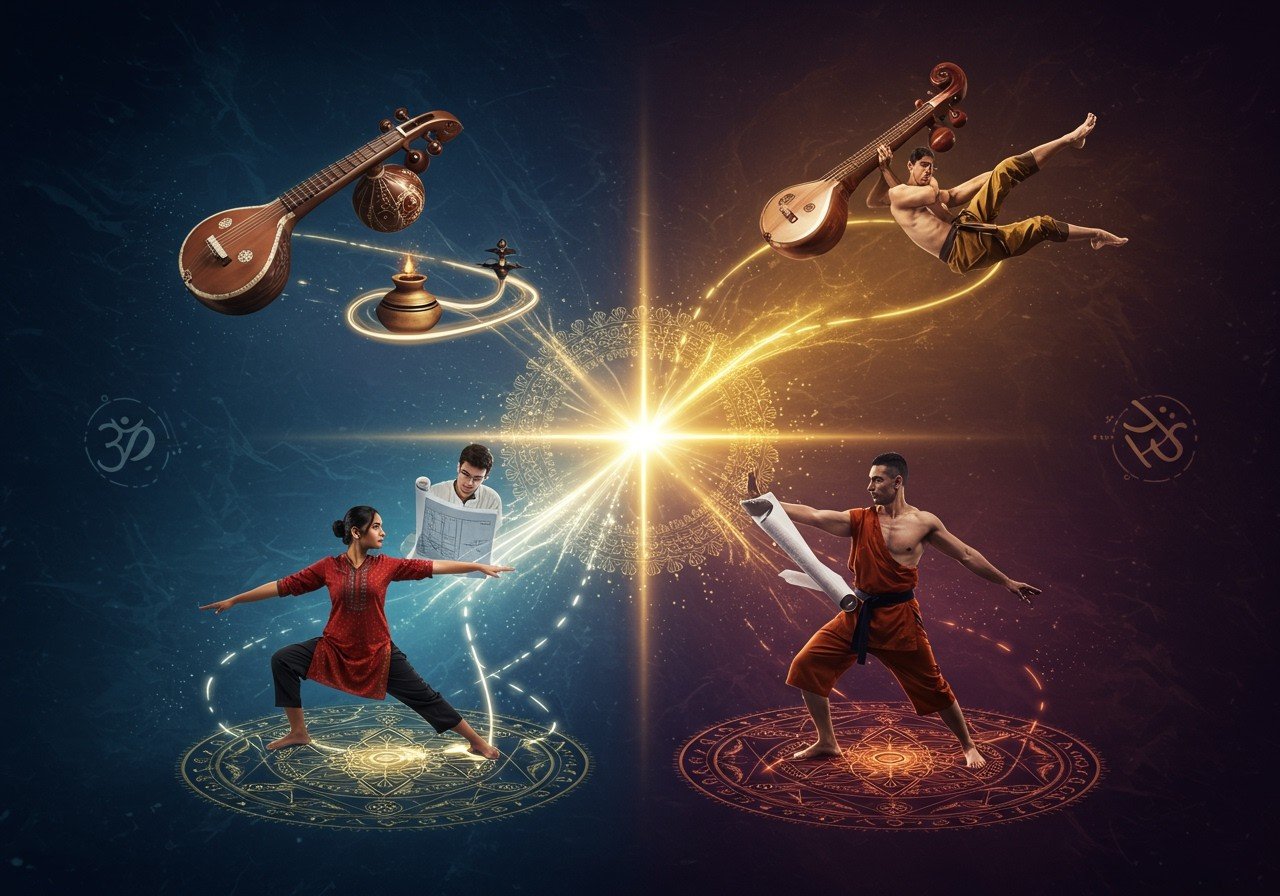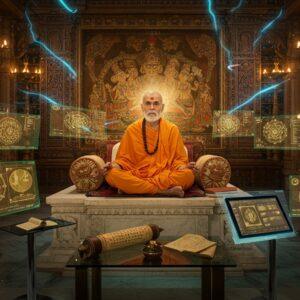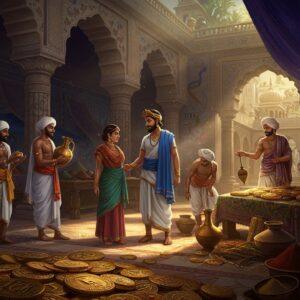
In the rich tapestry of Indian culture, the Upavedas hold a special place. These ancient texts, considered extensions of the four Vedas, cover diverse subjects like health, music, architecture, and even warfare. Though deeply rooted in tradition, the Upavedas offer wisdom that can truly enrich our lives today. As we explore these practices, we discover a beautiful blend of tradition and modernity, bringing balance and a touch of mindful innovation into our fast-paced world.
Exploring the Four Upavedas
The Upavedas comprise four core texts, each with its unique focus:
- Ayurveda: The science of holistic well-being, emphasizing natural remedies and balance within ourselves and with nature. It provides a framework for a healthy lifestyle, incorporating diet, exercise, and mental well-being. Ayurveda addresses physical, mental, and spiritual health, offering a comprehensive approach to a fulfilling life.
- Gandharvaveda: Delving into the healing power of music and its profound influence on our minds and bodies. It explores the therapeutic use of sound and rhythm, impacting emotional and mental states. Gandharvaveda connects music to spiritual practices, revealing its potential for self-discovery and inner peace.
- Sthapatyaveda: The art of architecture in harmony with nature, creating spaces that nurture and inspire. It emphasizes the importance of spatial arrangement and energy flow within buildings. Sthapatyaveda connects architecture to the cosmos, creating environments that promote balance and well-being.
- Dhanurveda: The science of warfare and self-defense, highlighting mental discipline and strategic thinking. It emphasizes courage, focus, and resilience, qualities essential for personal growth. Dhanurveda teaches us to face challenges with strength and integrity, applying its principles to everyday situations.
Understanding these texts reveals how ancient teachings remain incredibly relevant, providing profound insights for a healthier, more harmonious life. They remind us that true well-being comes from aligning with nature’s rhythms and cultivating inner peace.
Ayurveda in Our Everyday Lives
Ayurveda, a core Upaveda, guides us to create routines in sync with nature’s cycles. Dinacharya (daily routines) and Ritucharya (seasonal routines) help maintain harmony between our bodies and minds. The concept of ‘Ahara’ (food) as a vital energy source underlines the importance of wholesome nutrition.
By understanding our unique ‘Prakriti’ (individual constitution), Ayurveda allows for personalized health practices. Incorporating elements like pure honey and ghee into our daily routines can enhance our overall well-being. These are readily available on Poojn.in, ensuring quality and authenticity for your everyday rituals.
Gandharvaveda: Music as a Healing Force
Gandharvaveda explores the therapeutic effects of music. Specific sounds and rhythms influence our emotional states, offering relaxation and stress relief. Modern practices like music therapy draw inspiration from these ancient principles, demonstrating music’s power to enhance mental well-being. ‘Nada Yoga,’ the practice of using sound vibrations for meditation and spiritual growth, further illustrates this connection.
Sthapatyaveda: Ancient Principles for Modern Architecture
Sthapatyaveda brings ancient architectural wisdom into contemporary design. Vastu Shastra, rooted in this Upaveda, emphasizes harmonious spatial arrangements and energy flow, impacting our mental and physical well-being through balanced living spaces. Modern architects are increasingly integrating these Vedic design principles, incorporating natural elements and sustainable practices to create healthier environments.
Dhanurveda: Wisdom Beyond Warfare
Dhanurveda, while addressing warfare, also emphasizes mental discipline and strategic thinking. Its teachings on courage, focus, and resilience are highly relevant to personal development. Modern martial arts draw inspiration from Dhanurveda’s principles, extending its lessons beyond physical combat to conflict resolution and leadership, encouraging ethical conduct and mental strength.
Ancient Wisdom for Modern Challenges
Ancient Indian wisdom offers guidance across various aspects of life. The Bhagavad Gita, for example, teaches us to perform our duties without attachment to results – a valuable lesson for personal and professional growth. Ayurveda and Yoga, deeply rooted in ancient tradition, promote holistic well-being and have gained global recognition. Sustainable living, emphasizing harmony with nature, aligns perfectly with today’s environmental consciousness. Ancient educational systems, like Nalanda, continue to inspire modern learning networks. These timeless teachings offer valuable solutions for today’s challenges, blending tradition with innovation.
His Holiness the Dalai Lama has spoken about the relevance of this ancient knowledge, advocating for its integration into modern education. The University Grants Commission (UGC) in India is also actively working to incorporate Indian Knowledge Systems (IKS) into university curricula, ensuring these timeless teachings remain accessible and relevant in today’s world.
Poojn.in: Supporting Your Spiritual Journey
Poojn.in makes it easy to incorporate Upaveda wisdom into your daily life by providing authentic ritual items and materials. We offer a wide selection of products, from pure ghee and honey for offerings to Kushasan (Kush grass mats) for meditation and high-quality camphor for aarti. Explore our collection of Pooja Samagri online for all your needs. You can also reach us at 03369029784 or via WhatsApp at 9476142738.
Embracing the Upavedas Today
The wisdom of the Upavedas shines brightly in our daily lives, guiding us towards balance and harmony. By embracing these timeless teachings—Ayurveda’s holistic health, Gandharvaveda’s healing music, Sthapatyaveda’s mindful architecture, and Dhanurveda’s emphasis on mental strength—we create a bridge between ancient wisdom and modern living. These practices connect us to our rich heritage, offering practical tools for a more fulfilling and resilient life in today’s world.


